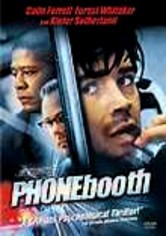
A logline is a 30 second elevator pitch. It is one to three sentences summarizing the concept, the premise of your screenplay. A logline is also known as the hook. It is what you use to pitch your story. When you meet with a producer and he asks, “What is your story about?” He is asking you to give him your logline. It should be short and concise, such as what you see in the TV guide. It tells what the movie is about. It should be written in such a way that it captivates and excites the interest of a producer or agent. When you send a query letter to a producer or agent, you will include your logline.
A great logline can help sell your script. Therefore, it must be enticing. Yet, it should be true and not misleading. Stories are about characters and problems (conflict). Without conflict, there is no story. A logline must show:
1) Who the story is about? (protagonist, hero).
2) What does he/she want? (goal/conflict).
3) What stands in his/her way? (Antagonist or primary obstacle)
A great logline can help sell your script. Therefore, it must be enticing. Yet, it should be true and not misleading. Stories are about characters and problems (conflict). Without conflict, there is no story. A logline must show:
1) Who the story is about? (protagonist, hero).
2) What does he/she want? (goal/conflict).
3) What stands in his/her way? (Antagonist or primary obstacle)

The type of characters should be described with an adjective and the logline should show irony. This is the logline for Phone Booth:
“A ruthless publicist finds himself trapped in a phone booth talking to a sniper who will shoot him dead if he hangs up the phone.”
As you can see, “ruthless” is the adjective. Who? The “publicist” is the protagonist. What? “Trapped in a phone booth” is the conflict. The goal of the publicist is to get out of the phone booth alive. What stands in his way? The antagonist is the “Sniper who will shoot him dead if he hangs up the phone.”
You should write your logline as soon as you know what your story is about. It will keep you focused while you are writing. Don’t use clichés, such as: “Race against time.” Lastly, make sure your logline sets the tone (genre) of your script. Is it a thriller or a comedy? The reader should be able to identify it in your logline.
If this article has been helpful, please leave a comment below. Or if you are having trouble writing your logline, write and tell us about it.
“A ruthless publicist finds himself trapped in a phone booth talking to a sniper who will shoot him dead if he hangs up the phone.”
As you can see, “ruthless” is the adjective. Who? The “publicist” is the protagonist. What? “Trapped in a phone booth” is the conflict. The goal of the publicist is to get out of the phone booth alive. What stands in his way? The antagonist is the “Sniper who will shoot him dead if he hangs up the phone.”
You should write your logline as soon as you know what your story is about. It will keep you focused while you are writing. Don’t use clichés, such as: “Race against time.” Lastly, make sure your logline sets the tone (genre) of your script. Is it a thriller or a comedy? The reader should be able to identify it in your logline.
If this article has been helpful, please leave a comment below. Or if you are having trouble writing your logline, write and tell us about it.